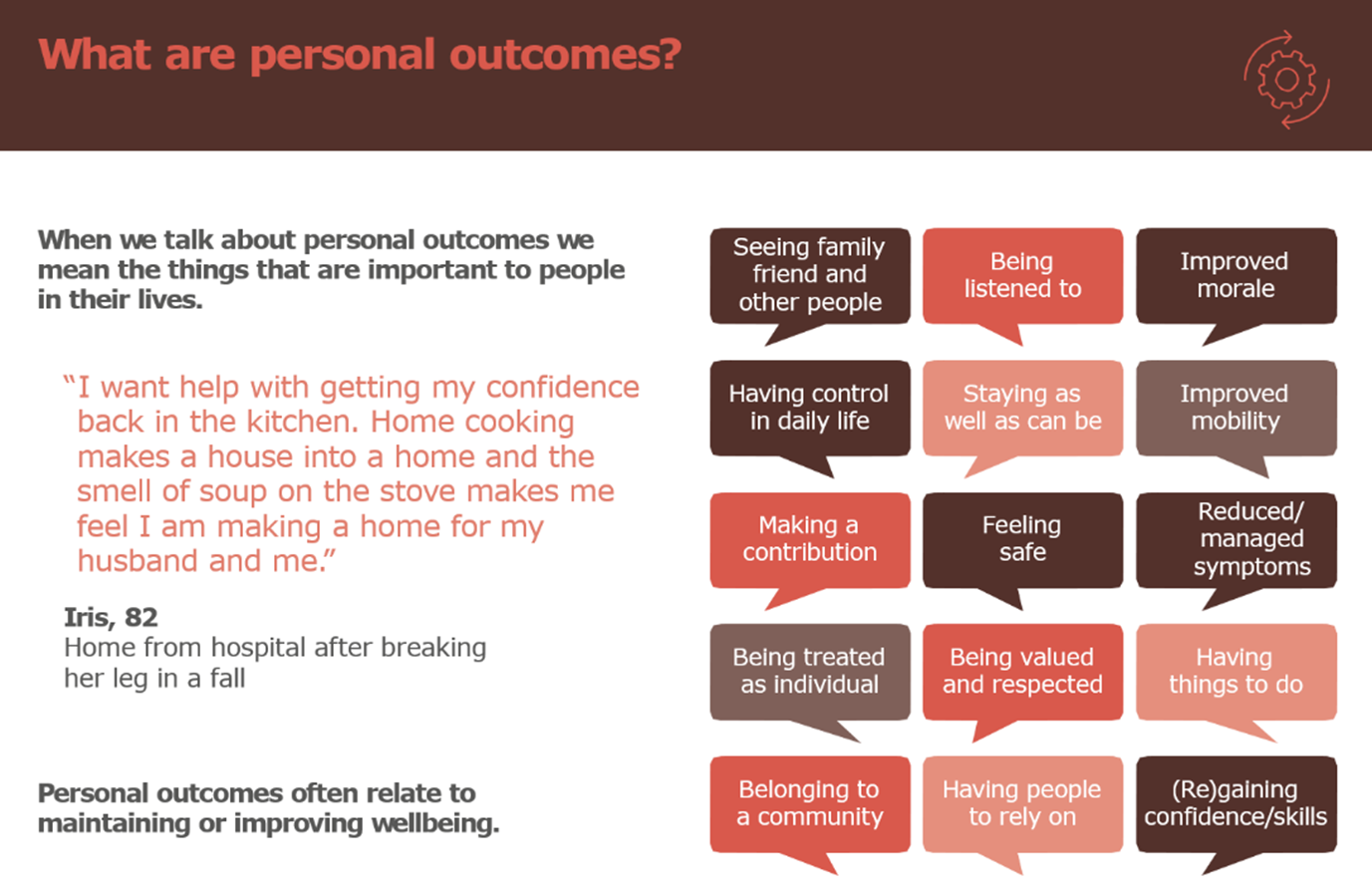Personal Outcomes and PA Employers
As a PA Employer you may come across the term ‘Outcome’ or ‘Personal Outcome’.
Simply put, an outcome is something that matters to you, that you want your support to help you achieve.
Personal Outcomes for PA Employers
As a PA Employer, you are likely to identify your Personal Outcomes in your Personal Outcomes Plan (or Support Plan).
These will focus on what’s important to you and what you would like to achieve. You can see some examples in the picture below:

Why Outcomes are important to PA Employers
As a PA Employer you may want to help your PAs to understand the Personal Outcomes you are trying to achieve. This will help your PAs understand how the support they provide makes a difference to your quality of life.
You could do this by:
- Including information on your Personal Outcomes in your PA’s Job Description
- Talking with prospective PAs about your Personal Outcomes at the interview stage
- Providing further information to your PAs on Personal Outcomes, including the sharing your Personal Outcomes Plan
- Provide opportunities for your PAs to undertake further training or development on Personal Outcomes
- If you contract with self-employed PAs, to ask that information on meeting your Personal Outcomes is included in that contract.
Next Steps
Find some more Resources below for further information on Outcomes.
